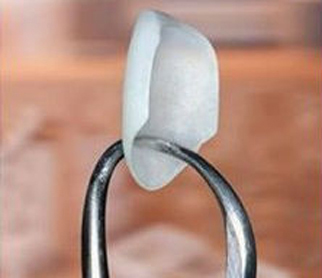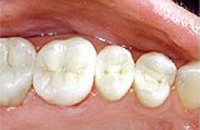I think that I want porcelain veneers. I found a dentist who is offering them about 25% cheaper than two other dentists that I met for consultations. My husband is warning me not to go cheap on something as important as my smile. I do love a bargain, and if this dentist can get it right, I am all for it. But what if I change my mind. Can porcelain veneers be reversed if I decide I don’t want them? Thank you. Claire from Houston
Claire –
Our first concern is shopping around for the lowest cost for dental care. Quality care and a beautiful smile are not cheap. It’s okay to look for a dentist with reasonable fees, but that should not be your basis for choosing a provider.
Results of Cheap Porcelain Veneers
If a dentist takes shortcuts just to give you a lower price, problems with your porcelain veneers can result, including:
- Low-quality veneers that don’t look natural or don’t last
- Poor bonding techniques that cause veneers to fall off
- Leakage behind your veneers that promotes decay
Are Porcelain Veneers Reversible?

Generally, after you receive porcelain veneers, they cannot be reversed. But some dentists might place veneers without preparing your teeth at all—or with very minimal preparation. In those cases, a skilled cosmetic dentist might be able to smooth and polish your enamel or use dental composite to restore the shape and gloss of your teeth.
But if a dentist aggressively prepares your teeth, if you decide you don’t want porcelain veneers, your teeth will have an unnatural shape and appearance. And you won’t like your smile.
Porcelain veneers are not meant to be removed. Weigh the pros and cons carefully before you ask a dentist for veneers.
Select a Skilled Cosmetic Dentist
Select a cosmetic dentist with advanced training in dental aesthetics. The dentist will be concerned about the function and appearance of your smile. Even at a 25% discount, you can expect to pay almost $1000 per veneer. That’s an investment. Why not choose a dentist who will enhance your smile?
True cosmetic dentists involve you in the process of designing your smile. You should expect the following from the dentist:
- Show you a wax model of your new smile
- Allow you to wear temporary veneers for about two weeks to see if you like how they look and feel
- Use a try-in paste to secure your porcelain veneers to your teeth and ensure you love them before bonding them on
The process takes time, and you should not rush it. It helps a cosmetic dentist ensure you love your new smile and don’t want to reverse it.
If you need to make the cost of porcelain veneers more affordable, speak with a cosmetic dentist about financing or payment plans. But don’t choose a dentist just because his or her fees are the lowest.
Plano, TX, female dentist, Miranda Lacy, DDS, sponsors this post.



 Daniel – A gentle dentist is able to give you root canal treatment that is painless. But if your anxiety level is high, sedation dentistry can help keep you calm. Even dental fillings or cleanings can be performed with sedation.
Daniel – A gentle dentist is able to give you root canal treatment that is painless. But if your anxiety level is high, sedation dentistry can help keep you calm. Even dental fillings or cleanings can be performed with sedation.